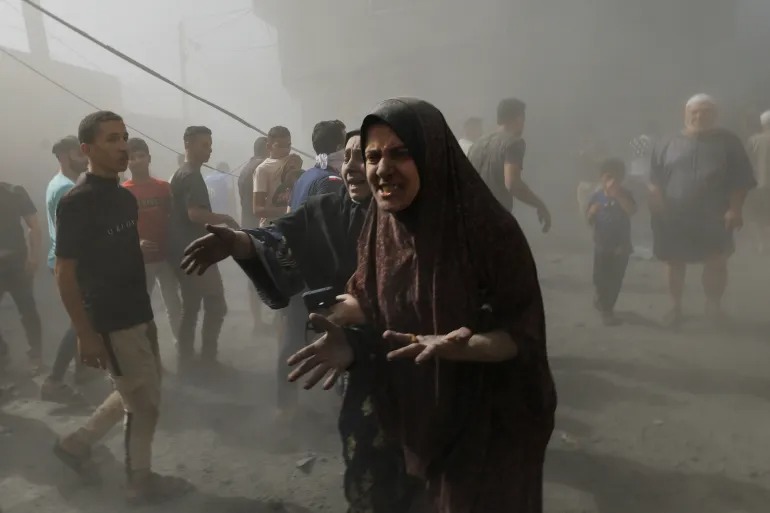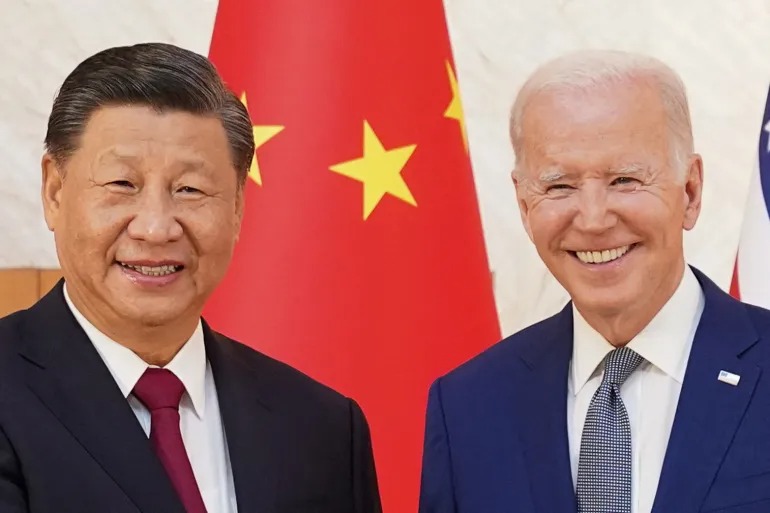In the midst of the ongoing conflict in Gaza, the United Nations Security Council finds itself entangled in a battle of words, struggling to reach a consensus on whether to implement a ceasefire or a humanitarian pause. The implications of this linguistic divide extend far beyond semantics, with countless lives hanging in the balance. On one side, there are calls for an immediate ceasefire, while on the other, the notion of a humanitarian pause gains traction. As the UN members grapple with these linguistic intricacies, Gaza remains on the brink, its besieged population in dire need of assistance.
The Ongoing Battle of Words
At the heart of this UN deadlock are the words that seem to have polarized member states. The term “ceasefire” stands as a symbol of the long-term option that involves a complete halt to hostilities. A ceasefire requires the agreement of all parties involved and typically encompasses a formal political process, often entailing commitments to de-escalate the conflict, such as withdrawing weapons and repositioning forces. It has the potential to lead to a permanent settlement.
However, this option has been met with resistance, particularly from the United States, the United Kingdom, and other countries that firmly support Israel’s right to defend itself. On the opposite side of the spectrum, UN Secretary-General Antonio Guterres has publicly called for an immediate humanitarian ceasefire, arguing that a traditional ceasefire seems “unimaginable” in the present circumstances, given the need for a binding agreement with signatories and associated de-escalatory obligations.
Another term in contention is the “cessation of hostilities,” often used interchangeably with ceasefire. However, this concept is generally less structured and lacks agreements on key aspects such as objectives, timelines, security, and monitoring. It can serve as a stepping stone toward a sustained ceasefire and is viewed as a more realistic option by some experts.
Impact on Gaza’s Humanitarian Crisis
The consequences of these linguistic disputes are acutely felt in Gaza, where the humanitarian crisis deepens with each passing day. The United Nations Office for the Coordination of Humanitarian Affairs (OCHA) reports that fewer than 70 trucks have been permitted entry into Gaza from the Rafah crossing with Egypt, a mere drop in the ocean compared to the pressing needs of the besieged population. Palestinians in Gaza are grappling with severe shortages of food, water, and medicine, a situation exacerbated by Israel’s complete siege on the enclave.
The United Nations Relief and Works Agency for Palestine Refugees (UNRWA), the primary UN agency in Gaza, has issued a dire warning. It may be forced to scale back its operations in the Strip if fuel supplies are not allowed in. As the Security Council continues to grapple with words, Gaza’s residents find themselves teetering on the brink of a humanitarian catastrophe.
Global Perspectives on Halt to Fighting
Beyond the UN Security Council, global perspectives on how to halt the fighting in Gaza vary widely. The UN General Assembly is set to vote on a non-binding draft resolution presented by the Arab group, calling for unrestricted humanitarian aid. Meanwhile, European Union leaders are attempting to find common ground in Brussels, though positions within the bloc diverge significantly.
The term “truce” offers another perspective. It signifies a temporary pause in hostilities without formal negotiations. Parties in conflict may opt for a truce after intense combat, but these agreements may be short-lived and apply only to specific areas. They typically allow for essential activities such as the removal of the wounded or burial of the dead, with the understanding that opposing forces should not change their positions during the truce.
Finally, the concept of a “humanitarian pause” comes into play. This denotes a temporary cessation of fighting purely for humanitarian reasons, often confined to specific geographic areas where humanitarian activities are taking place. The proposed “humanitarian pause” is essentially a truce to allow the passage of aid or the evacuation of displaced people.
The ongoing negotiations have also brought into focus the notion of “days of tranquility,” a mechanism designed to provide access to war zones on specific days. This approach, often employed by UNICEF, ensures that children have access to healthcare during conflicts, emphasizing the importance of protecting the most vulnerable.
As the world watches and waits, the critical question remains: will the UN Security Council overcome its linguistic divide to bring much-needed relief to the beleaguered population of Gaza, or will the battle of words persist while lives hang in the balance? The answer may determine the course of one of the most devastating conflicts of our time.
















